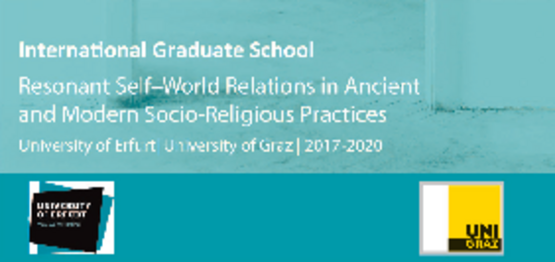Raphaela Swadosch
The Song of Songs as a contribution to the idea of radical relationality (working title)
The Song of Songs is a canonical book in the Old Testament of the Bible. The surprising thing is that it is erotic love poetry not even mentioning God, the history of the Israelites, the covenant, the prophets or any other common topoi of Old Testament writings. Hence the great variety which stems from the Song of Songs’ interpretations.
This variety is due to the fact that the protagonists described in the poem are anonymous. Who they are, where they meet and where they live remains uncertain. All we get are hints, allusions, and an exuberant imagery of flora and fauna, perfumes, herbs, spices, food and drinking, gardens, animals and seasonal landscapes. The dialogue of the protagonists in this setting is filled with love, passion, yearning and metaphorical language. Precisely because of this, exegetes from the 2nd Century CE until today applied different methods of reading to the text in order to grasp its meaning. Thus, they created a rich stock of exegesis. Groups of interpretation are e.g. allegorical, mystical, spiritual, literal, to name but a few.
My thesis thus engages with the self-world-relations deriving from the Song of Songs and its interpretations. By combining biblical anthropology with the resonance concept, this thesis aims to contribute – on an interdisciplinary level – another (new) interpretation to the Song of Songs. The parameters to explore self-world-relations are theologically connected to “constellative personhood” and sociologically deduced from Hartmut Rosa's resonance concept, including crucial elements such as: affection, self-efficacy, transformation and “Unverfügbarkeit.” These resonances form a self-world relation that helps to radicalize the idea of relationality. An idea that connects ancient with modern understanding of biblical texts.
In addition to these approaches, I use gender-fair exegesis as an analytical tool and pay special attention to the (de-)construction of gender in the Song of Songs. The Song plays with poetic language that blurs the lines between the gender-stereotypes. In order to understand the gender-relations in the poem one thus has to investigate the structures and cultural backgrounds of society in Ancient Israel where the Song was composed and ultimately edited, presumably between the 9th to 3rd Century BC.
Based on these approaches, I claim that there are resonances deriving from certain methods of interpretation of the poetry that aid the undoing of gender-stereotypes. They undo gender-stereotypes in favor of a reading that helps women and men to relate to each other and the world around them in a libidinously charged way that overcomes the gender-biased dichotomies. These resonances, which derive from certain interpretations, form a self-world relation that helps to radicalize the idea of relationality. In which way they do so will be the result of my research.
CV
Since 2018 PhD candidate in the Doctoral Program “Resonant Self-World-Relations” at the Karl-Franzens-University, Graz
2015 M.A. Theology at the School of Theology, Reutlingen
2013/14 Scholarship program at the Duke Divinity School Durham, North Carolina, USA
2004 Interdisciplinary further training program: Conflict and Peace at the FernUniversität Hagen
2001 M.A. Sociology and Politics at the Albert-Ludwigs-University, Freiburg






